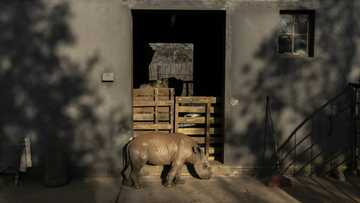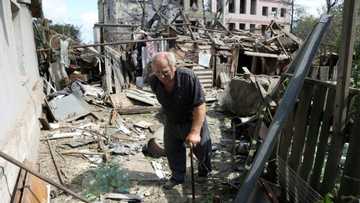In Ukraine's Siversk, a grave dug on a sidewalk
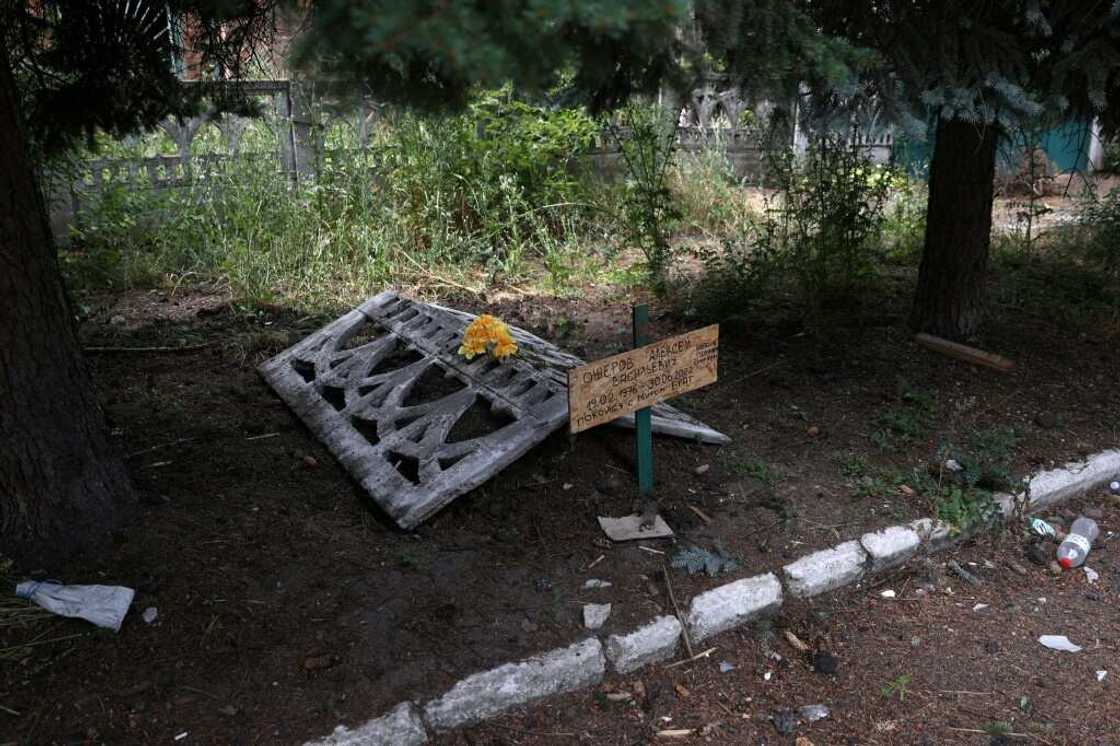
Source: AFP
Oleksy's grave was dug hastily on the sidewalk near one of the few buildings still standing in Siversk, a small town in eastern Ukraine near the frontline of the war with Russia.
The 46-year-old died in a missile strike on June 30, one of the many victims of Russia's February invasion of pro-Western Ukraine.
His final resting place outside the Siversk culture centre is but a small mound of earth, covered with two concrete slabs -- part of a nearby fence -- that serve as a tombstone.
"Rest in peace, my brother. We love you, we remember you, we mourn you," says a cardboard sign near the makeshift grave.
A small bouquet of yellow flowers has been placed on top.
"What can I tell you? He was sitting there in front of his house, there were two missiles and he was killed instantly," said Valery, a 56-year-old neighbour.
PAY ATTENTION: Share your outstanding story with our editors! Please reach us through info@corp.legit.ng!
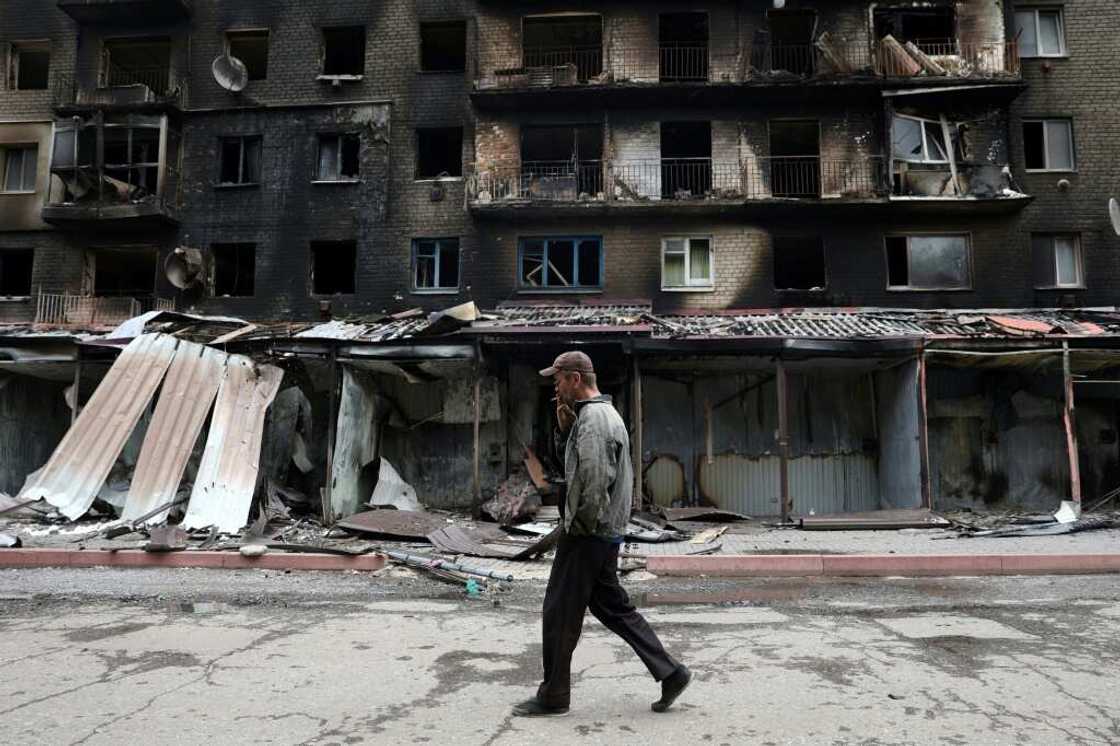
Source: AFP
But he doesn't have time to share more information. In Siversk, it is dangerous to linger in one place for too long.
Siversk lives and breathes fear. The town of around 10,000 people before the war has for weeks been relentlessly shelled by the nearby Russian forces.
Its streets are riddled with huge craters, its buildings scorched by fire. Outside stray cats and dogs play near the remains of rockets embedded in the sidewalks.
Visible through the first-floor windows of heavily damaged buildings are relics of an abandoned life: dressers, family photos, overturned armchairs.
'I can't leave her'
But despite the looming danger, some people are out on the streets, walking or riding bicycles, with the facial expressions of those who are beyond fear.
"I would like to leave, of course, but I have a 90-year-old mother, who told me she would die here. I can't leave her," says Oleksandr, a man in his 60s.
Others do not have the means to flee the constant shelling.
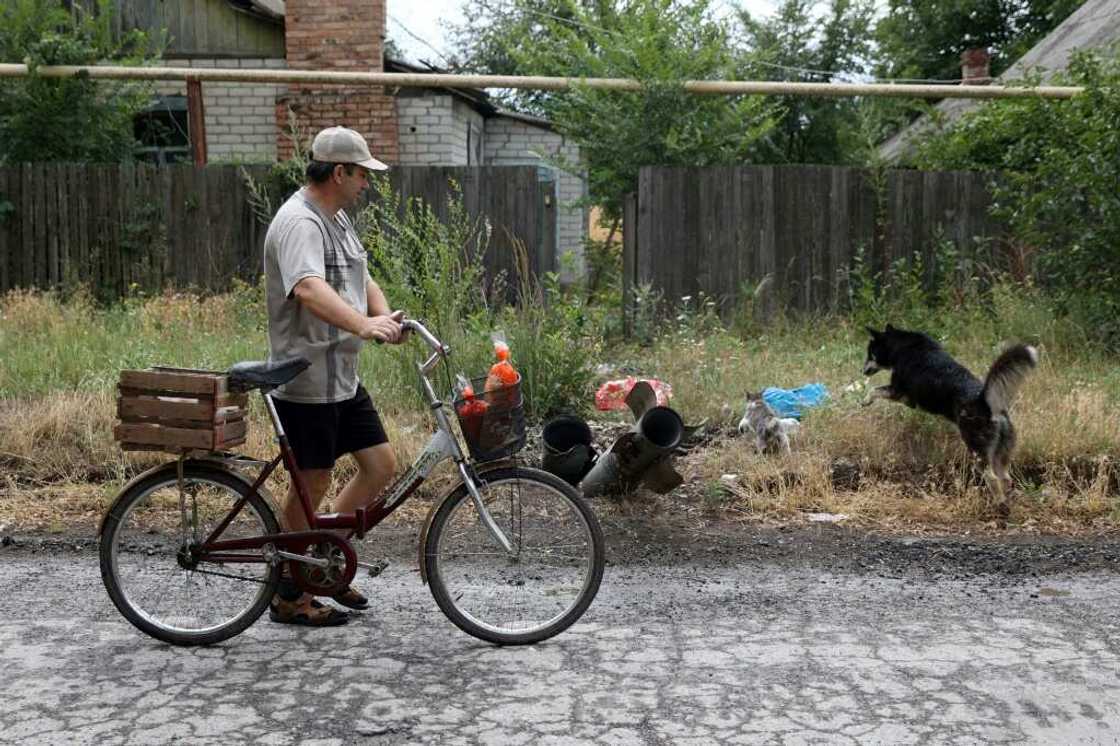
Source: AFP
"We have our house here, it's the work of our life. And we don't have the money to leave," says 50-year-old Anzhela, who like most people preferred to only give her first name.
At the entrance into underground cellars where the town's remaining civilians take shelter, gas heaters are used to cook food.
But others have evacuated or are doing so now as the fighting for eastern Ukraine intensifies. A family drives past in a car with a trailer carrying a fridge and a bicycle.
A torn Ukrainian flag flies over what remains of a building blackened by flames, likely a dormitory for workers.
And in front of a house nearly reduced to ashes, lies an empty wooden coffin.
It seems nobody had time to use it for its intended purpose.
Source: AFP


